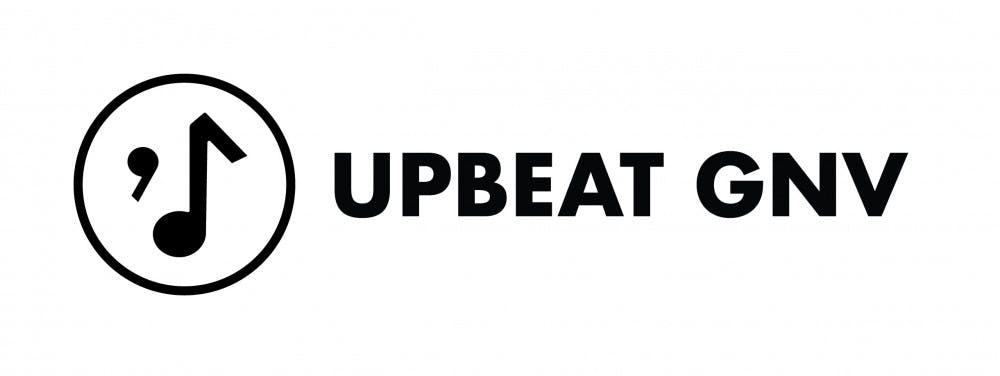Alex Klausner was busy California dreamin’.
A drummer since he was about 13 years old, the 30-year-old Gainesville native moved to Los Angeles in March with the dream of touring the world with his band. Unless he lost his arms and legs, he said nothing could take that away from him.
The COVID-19 pandemic and ensuing business shutdowns began the day Klausner finished setting up his apartment in Long Beach. Every music venue shut down. He followed suit.
“Drumming was my whole identity,” he said. “It was everything that I did, everything that I was. I lived and breathed it.”
He realized he had no direction.
He wondered how many of his peers were as anxious or depressed as he was, so he Googled it. He found that 73% of independent musicians suffer from symptoms of mental illness, including stress, anxiety and depression, according to Record Union. This is coupled with abnormally high rates of drug abuse and suicidal ideations, Klausner said.
Rather than accept the stats, Klausner started Upbeat GNV, a musician-led, musician-centered collective dedicated to improving artists’ mental health by educating and creating pathways to treatment.
“We want people to understand that we are here to help them,” he said. “We’re coming at this because we want to see a happier, healthy Gainesville community.”
Instead of individualized therapy, the collective will offer Zoom group therapy and mental health workshops beginning in December, as well as eventual in-person sessions. The mental wellness classes will teach healthy behaviors catering to those less comfortable talking about their own problems.
The sessions will be hosted by community partners. Mary Bobowiec of Let it Shine Counseling and registered therapist Kris Ann Arana will offer therapy, and mental health workshops will be held by Daimian Holiday Scott, guitarist and vocalist for local band Il Gato.
In terms of cost, Klausner said most musicians aren’t too wealthy. He said he’s brought up therapy to his peers countless times only to hear that they couldn’t afford it.
This led to the decision that Upbeat GNV would not accept payment, and staff members will donate their time for services they would normally be paid for, Klausner said.
Nearing the year’s end with no definite expiration date for pandemic shutdowns in sight, he said people in other professions have been able to adapt by going virtual.
Musicians have the same option and some have been able to adjust, Klausner said, but most of their income is generated from touring.
This is partly due to streaming services like Spotify and Apple Music that are used for exposure but don’t generate much revenue. This is significant, Klausner said, because many musicians’ anxiety has only worsened as their “breadline is hurting.”
“Even if they wanted to get help, they couldn't,” he said.
The project also offers a Mental Health Resources Guide. Klausner said most like it are just “info dumps” that don’t tell readers anything aside from basic contact information. While this serves a purpose, he never found it helpful as a user.
The guide’s resources are organized by cost, so people can see what the resource offers and an estimated price, though many are free.
“We want something that’s actually a document that is going to be helpful to people,” he said.
Because the group’s services are being held virtually, everyone in the country is eligible and Klausner encouraged anyone to sign up. He said they’d even like to keep at least one of the therapy groups virtual when they begin to shift to in-person sessions in the future.
Non-musicians are also welcome, he said, even if the resources might not be immediately relevant to them.
When trying to make musicians more aware of mental health challenges and more comfortable seeking treatment, every possible barrier — be it cost, accessibility or interest — must be removed, said John Gray Shermyen, Upbeat GNV’s co-director and bassist for Gainesville band The Savants of Soul.
Shermyen, 31, has been playing music since he was around 16 and said it’s an “open secret” that mental health is an issue in the scene. That has only been worsened by the pandemic.
“Even if you’re in Taylor Swift’s backing band, nobody’s gigging right now,” he said.
Upbeat GNV’s therapists either have experience with musicians or are familiar with the scene, Shermyen said. Artists are uniquely susceptible to mental health challenges because of their less-than-lucrative, work-centered lifestyle.
Specialists like Mary Bobowiec, a 31-year-old mental health counselor and owner of Let It Shine Counseling, understand the difficulties this way of life creates. A lover of music and the arts, she saw Upbeat GNV’s potential when Shermyen reached out to her for help on the project.
She’ll be offering a practical skills group using dialectical behavior therapy, which she said offers life and coping skills.
Whether in-person or virtual, Bobowiec said the project stands out because it focuses on an interest, rather than an age bracket or an issue.
“If I can help a community that needs it and donate some of my time, then I’d be happy to do it,” she said.
Anyone interested in attending, volunteering or making suggestions can email help@upbeatgnv.org, where they’ll be added to a waiting list and be notified when sessions begin.
Upbeat GNV is a new collective started to offer mental health services and resources to local musicians. Sessions will begin in December virtually and in-person classes are intended for the future.






